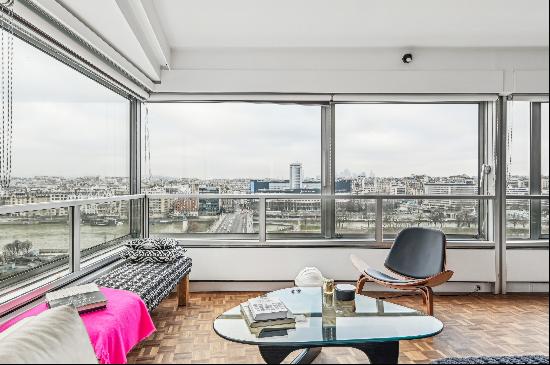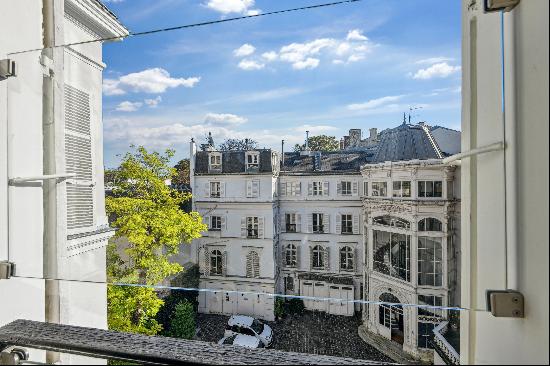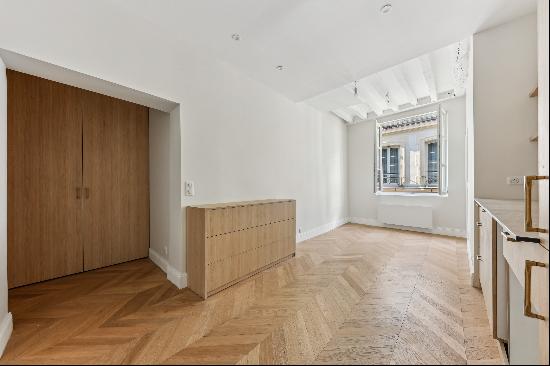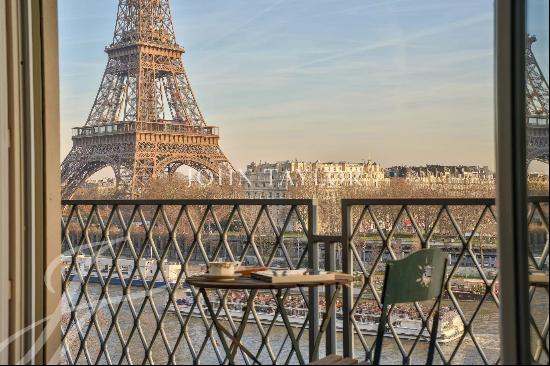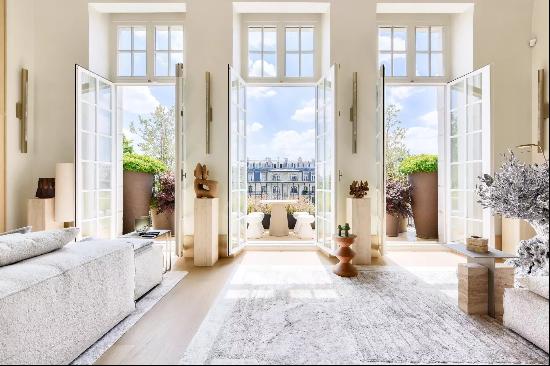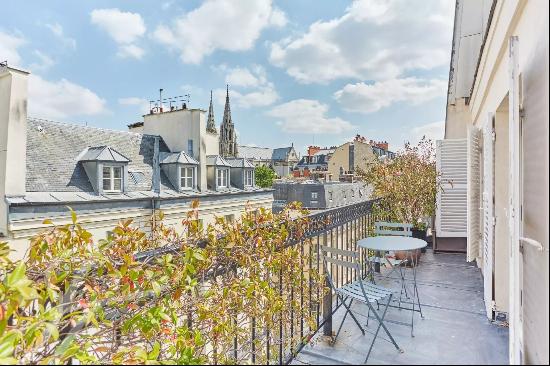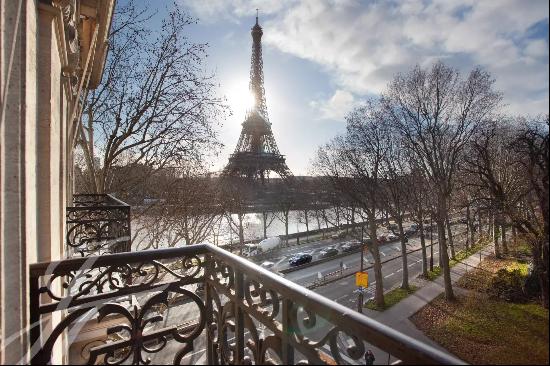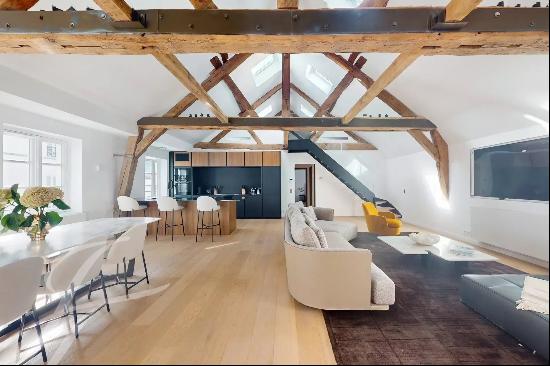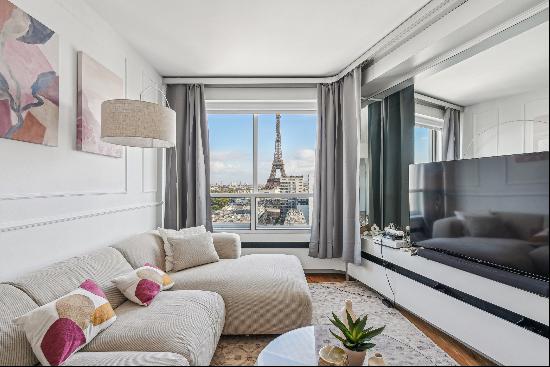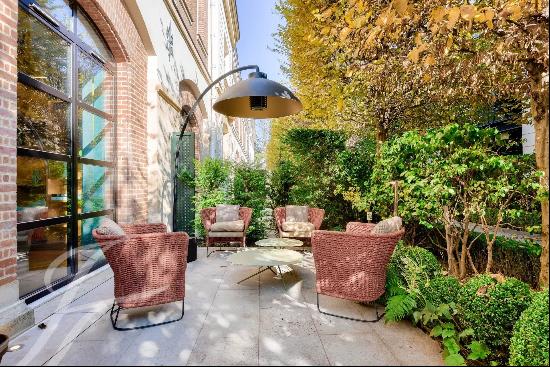
By Kitty Grady
In early September, I went to see Doors, an exhibition by Christian Marclay at the White Cube in London. The main work was a continuously looping montage of scenes from movies where doors are opened and closed. No one ever arrives; each closed door cuts straight to another scene and a door opening, ad infinitum.
While cinema’s replayed moments tend to be the explosions, confessions, first kisses and last dances, Marclay puts emphasis on the in-between. For him, such ellipses are worthy of our attention. After all, what is life if not a series of opening and closing doors?
A week later I went to see Ira Sachs’s Passages (2023), a film that also focuses on life's interim moments. Set in Paris, it follows Tomas (Franz Rogowski) and Martin (Ben Wishaw), a creative couple whose open marriage goes into free fall when Tomas falls in love with a schoolteacher called Agathe (Adèle Exarchopoulos). In the opening scene, Tomas, a director, scolds an actor when he walks down a set of stairs wrong, “This is just a transition moment,” he shouts. “But you are turning it into a big drama moment!”

In Passages, the interiors, designed by Pascale Consigny, reflect the character’s psychological ambulations, their lingering thoughts. They loiter in corridors and doorways as they wait to say something or to see if they will be pursued. When Tomas and Agathe first sleep together, the anticipatory build-up is broken when he leads her to the bedroom. As he slides the door closed, the mirror on the outside reflects the living room back at us. A visual “dot … dot … dot”.
The spaces here are aspirational as well as transitional, and Tomas and Martin’s Parisian apartment, with its parquet flooring, designer lighting, exhibition posters and crumpled linen, embodies for me a certain cosmopolitan ideal, a long-held fantasy of adulthood. Their rustic kitchen seems plucked from a Cézanne painting, and the couple also have a country house with blue shutters that match their vintage BMW, a baby grand piano and a wood-burning stove.
Yet Sachs shows such “adulting” can be prone to unravelling. With his one pathetic houseplant, Tomas moves into Agathe’s smart but more spartan flat, all the while childishly not giving Martin back his keys and arriving uninvited at his work and home. When the trio find the “grown-up” solution of a ménage-à-trois, a horrified Agathe hears the other two making love through the wall. It’s too close for comfort.

I may be in my twenties but I often feel that I am waiting for adulthood — as symbolised by Tomas and Martin’s well-decorated home — to begin. Yet Sachs’s interiors, with all their transitional spaces, demonstrate a much richer — and more realistic — fantasy of adult life. As humans, we are constantly changing, confronting and renegotiating our boundaries, and I realise I would cherish living in a home that could reflect this shifting interior landscape (like Tomas’s red hoodie, which bleeds into Martin’s crimson sofa when he refuses to let go).
I might put a premium on being in control of my domestic boundaries, closing my bedroom door and having a moment to myself, but the great pleasure of home is how it enables those transitions, allowing us to come together with others — a shared bookshelf or blanket to keep warm under.
And of course, there can be a beauty in finding our own borders again; closing a door on something that isn’t working. Near the end of the film, Agathe, cocooned in a navy dress, lies devastated on her white bed. But with the Parisian street reflected on the glazing behind her, Sachs suggests there’s a bright world out there for her. Later, in a corridor, Agathe is confronted with a pleading Tomas. Moments of transition can be painful, full of uncertainty, wanting and waiting, but it is also in them that we grow the most, and decide how to live.
Photography: Alamy Stock Photo


